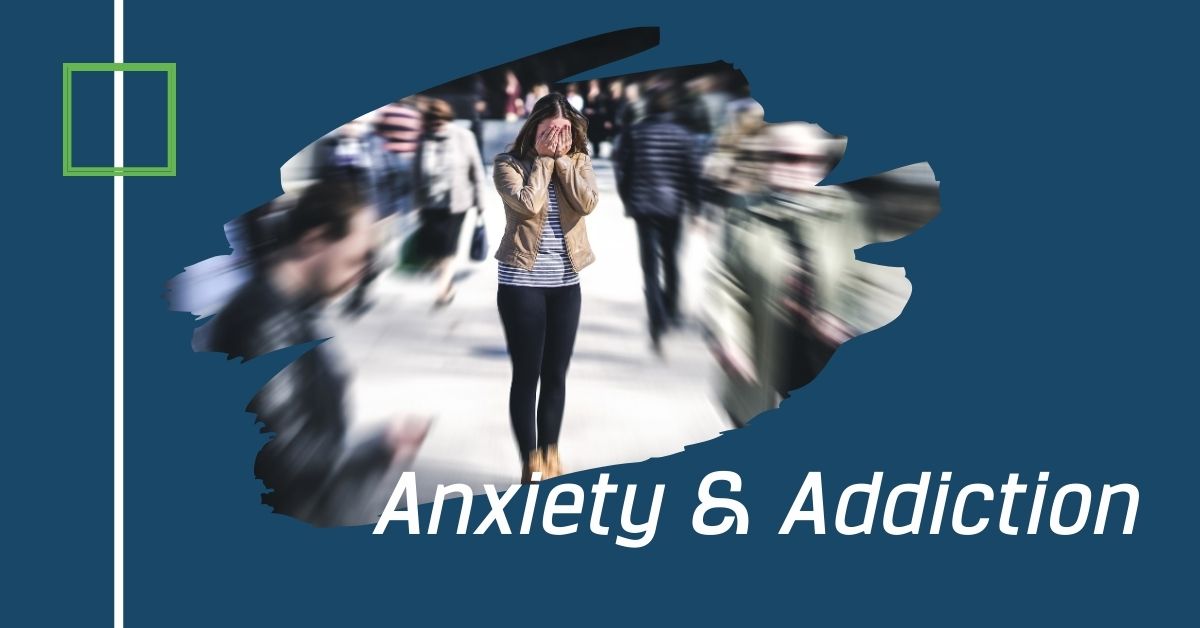Panic attacks, increased heart rate, a constant knot in your stomach, staring wide away in the middle of the night, or falling asleep at work because you can’t sleep at night. These are symptoms of anxiety or insomnia that send people searching for a solution. Benzodiazepines are one form of medication used to treat both of these disorders, but they also carry a risk of addiction. Benzo addiction is a reality for too many Americans. Luckily, there are alternatives to benzodiazepines for treating anxiety and insomnia. When in treatment for addiction, some of these alternatives are used to help clients treat their condition without sacrificing their physical, emotional, or social wellbeing.
Statistics on Benzos
According to The Cleveland Clinic, approximately 40 million Americans struggle with anxiety disorders and 70 million Americans struggle with insomnia. Nearly 12.5% of Americans use benzodiazepines each year, yet most of the people who misuse benzos get them from family or friends. Only about 20% of people who misuse or abuse these types of drugs actually obtain them via a prescription.
The most common reasons given for misusing benzos include:
- To relax and reduce tension (46.3%)
- To help with sleep (22.4%)
- To get high or being “hooked” (11.8%)
- Experimentation (5.7%)
About Benzos/History of Benzos for Anxiety
Benzodiazepines were first introduced in the 1960’s when the primary substances used to treat the same illnesses were barbituates. Over the next 20 years, benzos like Ativan and Klonopin replaced barbiturates as the go-to medicinal treatment for anxiety, insomnia, seizures, and more. Another 40 years later, we are painfully aware that benzodiazepines do carry a risk of dependency and addiction. Today, benzos are still prescribed to treat these conditions, but there is also a growing movement to employ the use of alternative treatments that carry less risk.
Alternative Treatments for Anxiety & Insomnia
As mentioned above, the call for alternatives to benzodiazepines for treating insomnia and anxiety is growing. From alternative medicines to behavioral therapies, there are several powerful options. No one treatment works for everyone, and in many cases, a combination of therapies is best. The alternatives to benzodiazepines that we will be covering can be broken down into two categories: medication-based and behavioral treatments. These include:
- Selective serotonin reuptake inhibitors (SSRIs)
- Antihistamines
- Z-Drugs
- Cognitive Behavioral Therapy (CBT)
- Lifestyle Changes
SSRI’s are more commonly used as antidepressants, but can also be prescribed to manage anxiety. They are considered to be safer than benzodiazepines as they are not fast-acting and therefore non-addictive. In fact, it can take 6-weeks for these medications to become effective. These are an excellent medication alternative for someone who has a history of addiction, but they do not come without their own side effects. The greatest concern with SSRIs is that during the 6 weeks before they become effective, they may actually make anxiety worse. For this reason, someone prescribed SSRIs should be monitored closely by medical professionals and should have a strong support system in place.
Antihistamines are a type of medication often used to treat allergies, but can also be used for anxiety and insomnia. Like SSRIs, they are not considered to be addictive. Unlike SSRIs, they work almost immediately. However, one side effect of Antihistamines is that they do cause drowsiness. This may make it challenging for individuals to function while on the medication, but makes it an option for those who struggle with insomnia.
Z-Drugs is a term used to describe non-benzodiazepine medications used as a sleep aid. These drugs include Lunesta, Ambien, and Sonata. Although these drugs are marketed as less dangerous, they most certainly are not taken without risk.
Now, we will get into our first non-medication alternative for anxiety. CBT is a form of behavioral therapy performed by licensed therapists. Behavioral therapy is a great alternative because it can help address the underlying issues that cause anxiety and even some sleep issues. This potentially makes CBT a long-term treatment. Additionally, CBT can be completed with or without the use of medications. CBT requires dedication as it requires meeting with a therapist regularly. It also requires putting forth the effort to apply what is covered during therapy to one’s day-to-day life.
Lifestyle changes are a part of a holistic approach to treating any condition. The focus is on helping individual conditions by improving one’s overall wellbeing. Holistic therapies include yoga, meditation, massage, art therapy, etc. These practices in addition to a balanced and nutritious diet and exercise are some of the main components of a holistic approach.
